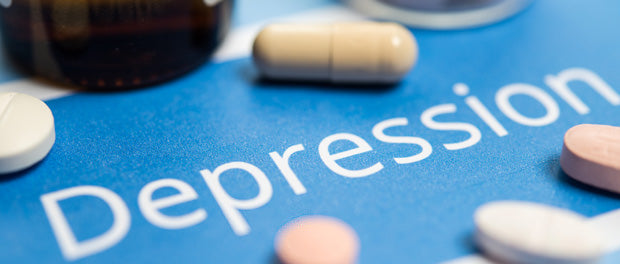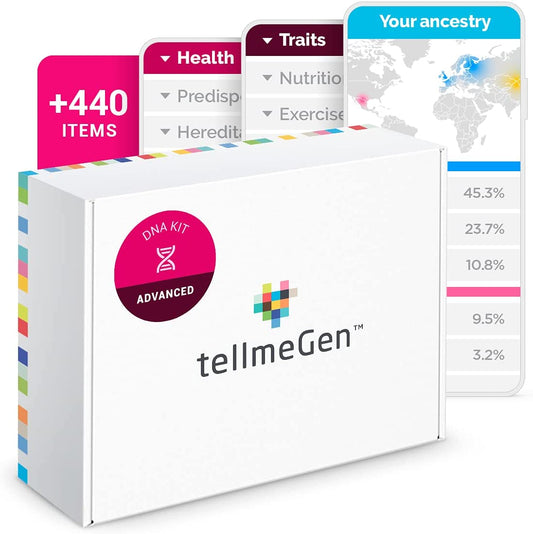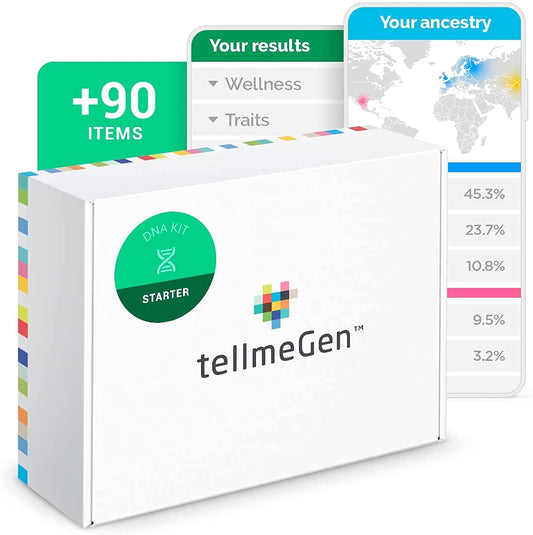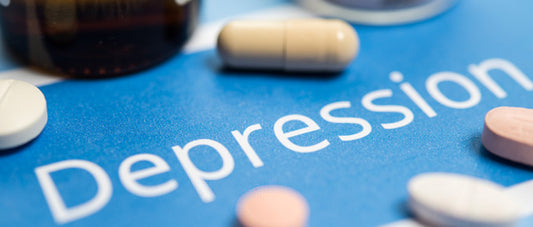Genetic Insights: Enhancing Depression Treatment with TellmeGen Pharmacological Reports
Depression, a multifaceted mental health condition, often requires a meticulously tailored treatment plan. The efficacy, dosage, and potential for adverse effects of antidepressant drugs can vary dramatically among individuals, a variability that is partly explained by genetics. TellmeGen's pharmacological report offers clinicians and psychiatrists a cutting-edge tool for personalising treatment strategies.
Antidepressants and Genetic Influence
Duloxetine (Efficacy): An antidepressant that's primarily used to treat major depressive disorder. TellmeGen's report can advise on the likelihood of efficacy based on genetic makeup.
Fluoxetine, Citalopram, Escitalopram (Efficacy): Commonly used for depression and anxiety disorders, these drugs' effectiveness can be forecasted with genetic insights provided by TellmeGen.
Mirtazapine (Efficacy): Used for major depressive disorder, TellmeGen's report may offer predictions on how well a patient might respond to this medication.
Selective Serotonin Reuptake Inhibitors (SSRIs) (Adverse effects): While effective for many, SSRIs can cause adverse effects. TellmeGen helps identify genetic predispositions to such reactions.
Venlafaxine (Efficacy): An antidepressant used for depression, anxiety, and panic disorder, with efficacy potentially being influenced by genetic factors, as highlighted by TellmeGen.
Amitriptyline (Adverse effects and Dosage): This medication treats a variety of mental health conditions. TellmeGen provides insights into possible side effects and optimal dosing guidance based on genetics.
Citalopram (Dosage): Its therapeutic effects can vary; hence, TellmeGen may offer dosage recommendations to optimise treatment outcomes.
Clomipramine (Dosage): Tailor your treatment of obsessive-compulsive disorder with TellmeGen's dosage advice, reflective of your unique genetic makeup.
Desipramine (Dosage): Combat depression effectively; let TellmeGen guide the dosage of Desipramine based on your DNA.
Escitalopram (Dosage): Ensure optimal relief from anxiety and depression with Escitalopram dosage recommendations from TellmeGen tailored to your genetic code.
Fluvoxamine (Dosage): Manage obsessive-compulsive disorder more effectively by adjusting your Fluvoxamine dosage with insights from TellmeGen's genetic report.
Nortriptyline (Dosage): Treat nerve pain and depression with confidence using TellmeGen's personalised dosage guidelines for Nortriptyline.
Paroxetine (Dosage): Refine your treatment of depression, anxiety, and PTSD with Paroxetine dosage suggestions based on your genetic profile from TellmeGen.
Perphenazine (Dosage): Manage psychosis with precision through Perphenazine dosing tailored to your genetics as highlighted by TellmeGen.
Phenytoin (Dosage): Optimise seizure control without complications with Phenytoin dosage guidance derived from your genetic insights provided by TellmeGen.
Pimozide (Dosage): Address Tourette's syndrome with more precision through Pimozide dosage recommendations from TellmeGen, customised to your genetic information.
Quetiapine (Dosage): Balance the management of bipolar disorder and schizophrenia with Quetiapine dosing advice from TellmeGen.
Risperidone (Dosage): TellmeGen's personalised dosage information for Risperidone can enhance the treatment of schizophrenia and bipolar disorder tailored to your DNA.
Sertraline (Dosage): Achieve better outcomes in treating depression and anxiety with Sertraline dosage recommendations informed by your unique genetic profile through TellmeGen.
Zuclopenthixol (Dosage): Administer Zuclopenthixol for psychoses with precision, guided by dosage advice based on your genetic data from TellmeGen.
Olanzapine (Adverse effects): Used as an antipsychotic and for bipolar disorder, TellmeGen can alert prescribers to potential adverse genetic reactions.
Phenytoin (Efficacy and Dosage): As an antiepileptic, its efficacy and optimal dosage can be significantly influenced by genetics.
Ziprasidone (Efficacy): TellmeGen can aid in determining if a patient is likely to benefit from this antipsychotic medication.
FAQ Section:
Q: How does TellmeGen’s report help in treating depression? A: TellmeGen’s report gives insights into genetic factors that influence how patients metabolise and respond to antidepressants, aiding in more personalised and effective treatments.
Q: Can genetic testing predict the best antidepressant for me? A: While it doesn't pinpoint the 'best' drug, it can significantly narrow down the options based on your genetic profile.
Q: Does genetics determine the dosage of all antidepressants? A: Not for all, but for many antidepressants, genetic markers can guide optimal dosing to improve treatment efficacy and reduce side effects.
Q: Are there any risks associated with genetic testing for medication response? A: The physical process of genetic testing is generally low-risk, but there may be implications regarding insurance and privacy that should be considered.
Incorporating genetic testing into the management of depression signifies a move towards precision medicine. TellmeGen’s pharmacological report serves as a beacon, guiding the course of treatment in a sea of pharmaceutical options, ensuring each patient receives a tailored approach to their mental health journey.















